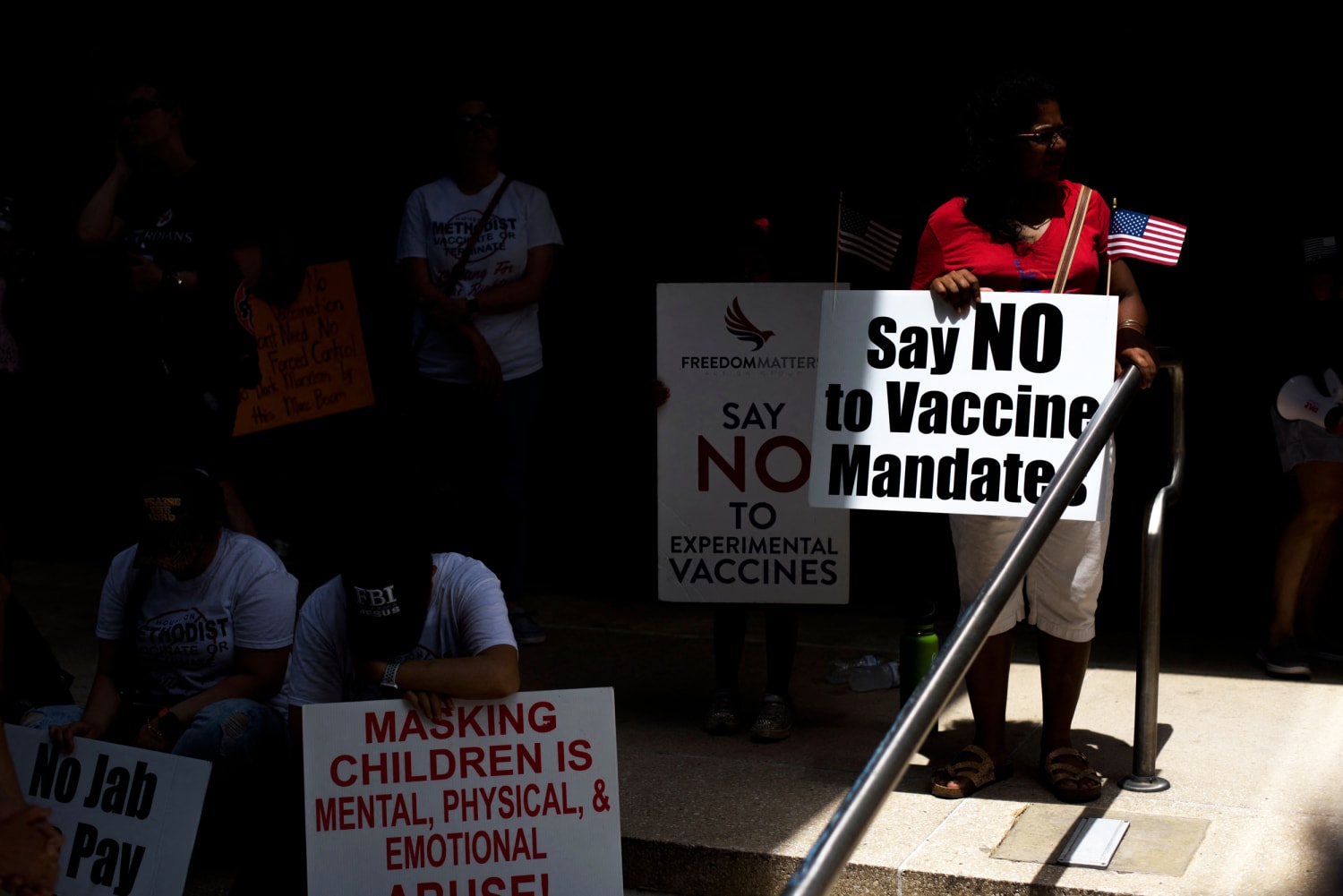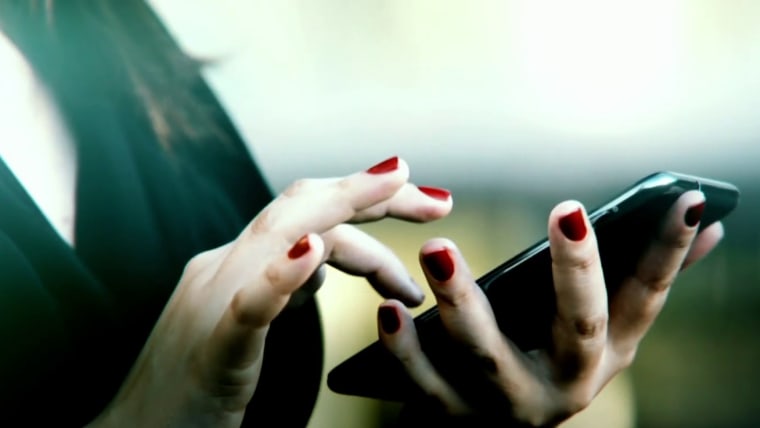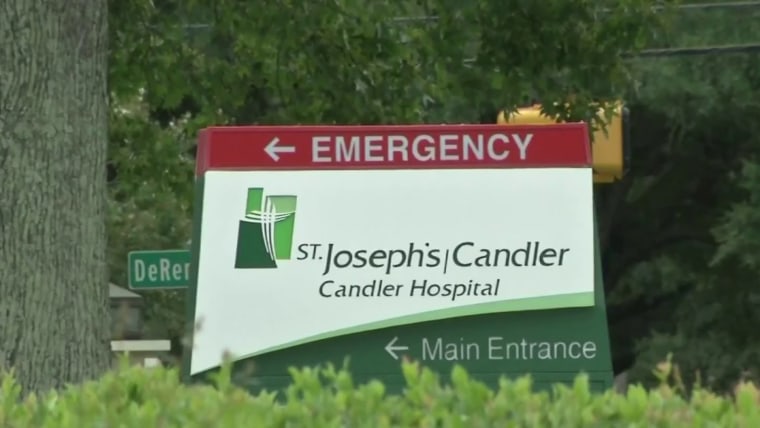Keisha Bryan, a psychotherapist near Raleigh, North Carolina, had a slate of activities she wanted to do this summer with her husband and their 5-year-old daughter: attend neighborhood parties, visit a trampoline park and travel to Walt Disney World for a much-needed family vacation.
But even something as carefree as the Downtown Raleigh Food Truck Rodeo, which they’ve attended previously, is off the table this year after event organizers announced Monday it was canceled because of the surge of Covid-19 cases in the region. North Carolina, like many states across the country, has been hit by a doubling of new coronavirus cases and hospitalizations rising due to the highly transmissible delta variant.
Bryan and her family have played it safe throughout the pandemic, getting vaccinated, wearing masks and avoiding large social gatherings. But in the face of a pandemic relapse, as vaccination rates stall and polls show most unvaccinated Americans still aren’t interested in getting inoculated against Covid, her hopes are dashed for a jampacked summer. Now, another feeling has overcome her: contempt.
“I find myself doing all of these extra things and being thoughtful, because I learned from my grandmother to not just care for yourself but care for your neighbor,” Bryan said. “Now I’m getting to the place where I’m angry — angry that I see other people not doing the same, not getting vaccinated when they can. Don’t we all want to get back to normal?”
That yearning for a yesteryear — shared by both the vaccinated and the unvaccinated — has seemed increasingly less attainable amid the rancor and the debate that have come to define a pandemic filled with rampant politicization and misinformation. A rise in cases has led to summer camps getting canceled and concerts postponed. Arguments over vaccines and vaccine mandates have also ripped apart marriages, taken over social media and become sticking points for businesses, with some catering to only vaccinated customers and others offering to only serve the unvaccinated.
Almost 58 percent of people in the United States 12 and older are fully vaccinated against Covid, although the rate has slowed since April and the country has fallen short of President Joe Biden’s goal earlier this month of 70 percent of eligible individuals being vaccinated with at least one dose.
But even in conservative states where the idea of personal choice is highly coveted — and vaccination rates are lagging — the unvaccinated have drawn resentment.
“It’s the unvaccinated folks that are letting us down,” Alabama Gov. Kay Ivey, a Republican, said last week as her state grappled with having the lowest vaccination rate in the country. “These folks are choosing a horrible lifestyle of self-inflicted pain.”
In a setback, the Biden administration recommended Tuesday that even vaccinated people continue wearing masks indoors in parts of the country struggling to contain the delta variant — a regression from two months ago, when the fully vaccinated were encouraged to ditch their masks because of the efficacy of the vaccines. Federal health officials still contend that so-called breakthrough Covid cases among vaccinated people are small and that the majority of hospitalizations is among the unvaccinated.
Now, the latest reversal indicates that a lighthearted summer akin to years past or a salvageable 2021 may be slipping away.
“It makes you want to smack people upside the head,” Elise Power, 66, of Orange County, California, said.
She said she’s been looking forward to traveling to England at the end of the year to finally meet her daughter-in-law’s parents in person. But that trip is now “a toss of the coin,” she said.
While she said she understands there may be certain circumstances in which a vaccine-eligible person may not feel comfortable with getting vaccinated or would rather wait, those who are simply choosing not to and flaunting their resistance don’t garner any respect from her.
“They’re so utterly selfish,” Power, a retired banking manager who got vaccinated in March, said. “They’re relying on everyone else to do what they should be doing.”
This month, public health officials in Los Angeles County reinstated the indoor mask mandate in response to the quickening spread of the delta variant.
“Now that they’re telling us to mask up again, you’re taking away the reward for being vaccinated,” Power added.
Political affiliations have played some role in whether a person is vaccinated or may choose to be.
A Henry J. Kaiser Family Foundation poll conducted in May found that of those who were unvaccinated, 49 percent identified as Republican and 29 percent as Democrat. Of those vaccinated, 31 percent identified as Republican while 59 percent identified as Democrat.
Meanwhile, a new poll from The Associated Press-NORC Center for Public Affairs Research, conducted before several Republicans and conservative cable news personalities this week urged people to get vaccinated after months of stoking hesitancy, found Republicans are far more likely than Democrats to say they have not been vaccinated and definitely or probably won’t be — 43 percent to 10 percent.
The poll also found that among American adults who have not yet received a vaccination, 35 percent say they probably will not, and 45 percent say they definitely will not. Only 3 percent of those who responded say they definitely will get the shots, while another 16 percent say they probably will.
Cody Johansen, who lives near Orlando, Florida, considers himself a conservative Republican, but said that had no bearing on his decision to skip vaccination.
“It hasn’t really been that dangerous to people in my demographic, and I have a good immune system,” said Johansen, 26, who installs audiovisual equipment at military bases. “Most of my friends got vaccinated, and they’re a little mad at me for not getting it. There is peer pressure because they say it’s a civic responsibility.”
He said it’s obvious the shots have been effective, though it bothers him a little that they have only emergency use authorization from the Food and Drug Administration.
Rebecca Brocious, who lives in a largely conservative county in north-central Pennsylvania, said it was a “no-brainer” to recently get her 12-year-old son vaccinated. Previously working as a contact tracer, Brocious said, she’s had delicate conversations with friends and acquaintances about the benefits of getting vaccinated, but now, she’s feeling almost defeated.
“It’s been so long that I’ve argued with people to wear masks and get vaccines that it’s worn me down and I’m like, ‘Make yourself sick,'” she said. “I’ve got tired and can’t keep explaining how masks and vaccines help.”
In June, Brocious, a former substitute teacher, said she attended a retirement party for a colleague and it felt almost like old times. Everyone said they were vaccinated and people chose not to wear masks.
“Someone came to shake my hand,” she said, adding she was unsure at first. “I shook like six hands,” she added, although she felt “peer pressure to do so.”
That was before the delta variant became the predominant strain in the U.S. Now, she said, she worries what its spread might mean for her son’s return to the classroom for the new school year and if it will again become upended by Covid cases.
For now, she’s pining for a getaway with her family next month to Rehoboth Beach, Delaware — that is, if she doesn’t have to cancel traveling because of a fresh wave of Covid restrictions.
“So much has been ruined,” Brocious said. To the unvaccinated who are feeling apathetic, “don’t be self-centered.”
Source: | This article originally belongs to Nbcnews.com











